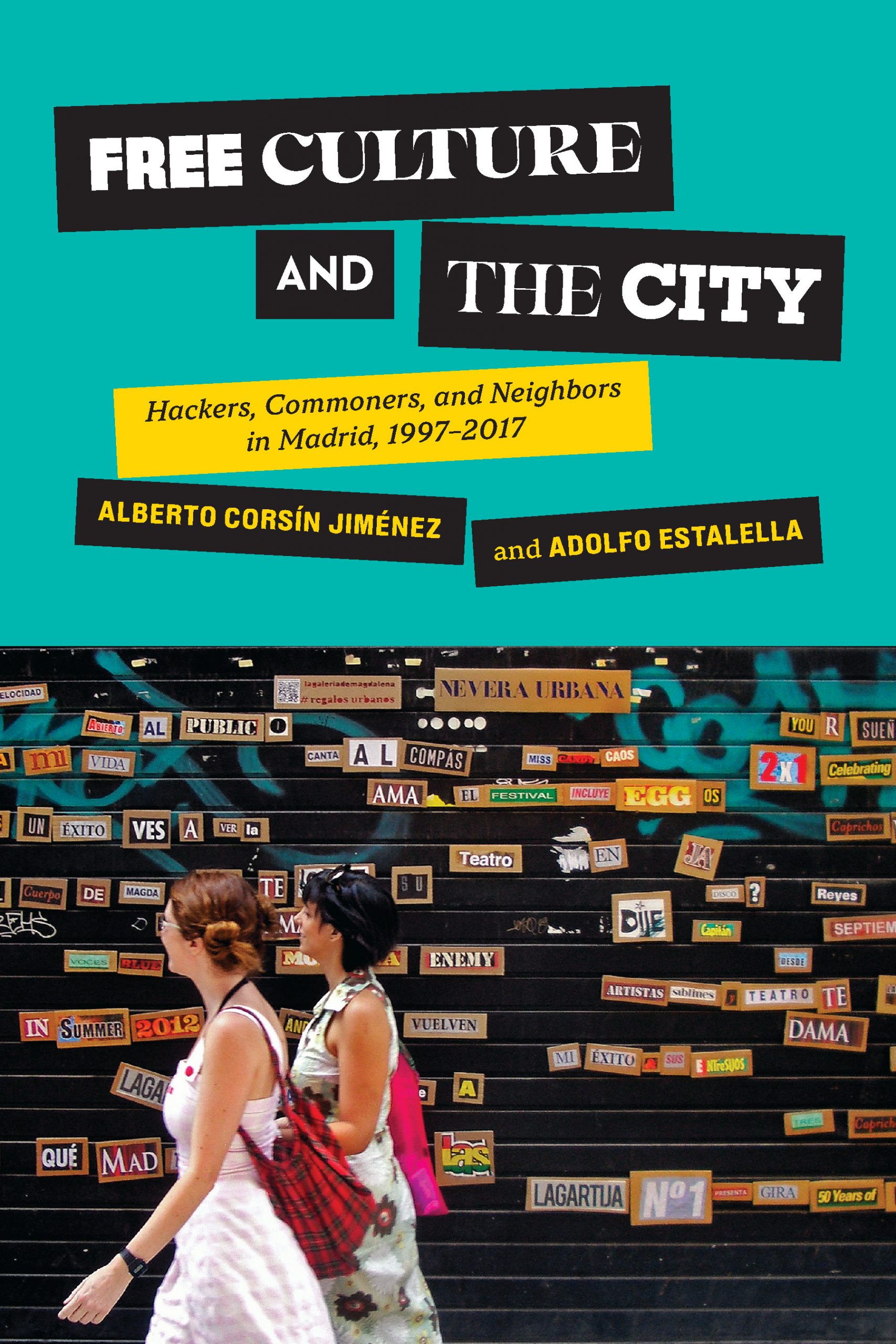Free Culture and the City examines how and why free software spread beyond the world of hackers and software engineers and became the basis for an urban movement now heralded by scholars as a model for emulation.
By the late 1990s, digital activists embraced a philosophy of free software and “free culture” in order to take control over their cities and everyday lives. Free culture, previously tethered to the digital realm, was cut loose and used to reclaim and resculpt the city. In Madrid the effects were dramatic. Common sights in the city were abandoned as industrial factories turned into autonomous social centers, urban orchards, guerrilla architectural camps, or community hacklabs.
Drawing on two decades of ethnographic and historical work with free culture collectives in Madrid, Free Culture and the City shows how, in its journey from the digital to the urban, the practice of liberating culture required the mobilization of, and alliances between, public art centers, neighborhood associations, squatted social centers, hackers, intellectual property lawyers, street artists, guerrilla architectural collectives, and Occupy assemblies.
Alberto Corsín Jiménez and Adolfo Estalella. (forthcoming, 2023). Free Culture and the City. Hackers, Commoners, and Neighbors in Madrid, 1997–2017. Cornell University Press.
